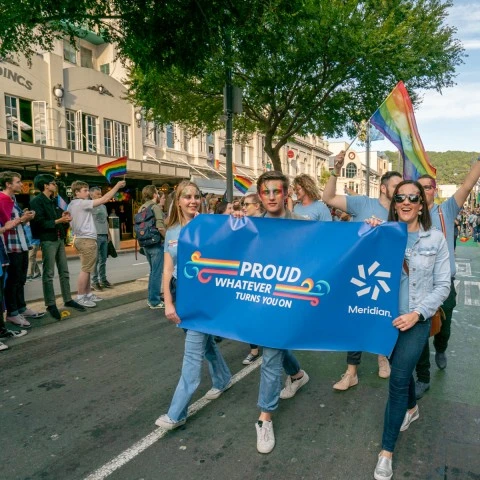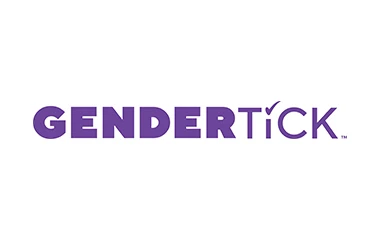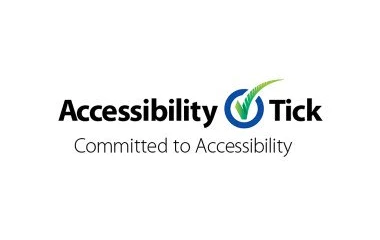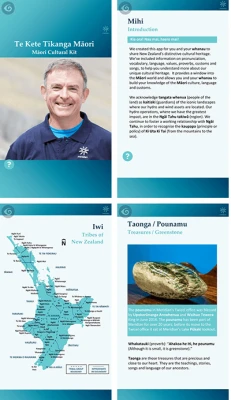Diversity and inclusion
Bring your whole self to work. Be unique. Be authentic. However you prefer to say it, we really mean it. Our culture embraces people’s diverse perspectives and creates a positive environment where everyone belongs.

Bring your whole self to work. Be unique. Be authentic. However you prefer to say it, we really mean it. Our culture embraces people’s diverse perspectives and creates a positive environment where everyone belongs.
At Meridian we support and value all of the different experiences and views that our people bring. Diversity and Inclusion is not about how you look, it's about how you think. Anyone can be successful at Meridian.
The differences we all bring to work help us to create a high performing environment. The way we individually think and the unique experiences we've had, help us to look at things from various perspectives and be innovative.
We look at diversity from the view that we're all diverse. Having a wide range of diverse people of different ages, gender, ethnicities, abilities and experiences, gives us a competitive edge in the market.
Being an inclusive culture means that we listen to and respect input from everyone who works here. We value and appreciate the uniqueness that makes us individuals. We want Meridian to be a great place to work for everyone!


We’re proud to be accredited with the Gender Tick. We're committed to achieving pay equity for male and female employees in similarly-sized roles, with similar skills, experience and accountabilities.

We’re honoured to be a member of the Accessibility Tick Programme. We're committed to ensuring Meridian is an accessible place for everyone to work.
Meridian’s Belonging (diversity and inclusion) programme centres on seven key focus areas.
Meridian’s Belonging Policy outlines our target for overall gender balance of 40% women, 40% men, and 20% any gender across the organisation.
We also have ongoing commitments to achieve gender balance across leadership and senior roles.
At an operational level, Meridian is striving to achieve more than 40% representation of women across the workforce, through initiatives which will enable progress toward the following more-specific gender targets. These targets are:
| % Women (Operational target) | |
|---|---|
| All employees | 50% |
| All Management positions | 50% |
| All top management (Senior Leaders) | 40% |
| Employees in revenue-generating functions | 50% |
| Employees in STEM related roles | 40% |
| Female | Male | |
|---|---|---|
| Executive | 30% | 70% |
| Senior manager | 29.7% | 70.3% |
| Mid manager | 43.2% | 56.8% |
| Mid non-manager | 29.5% | 70.5% |
| Junior manager | 68% | 32% |
| Non-managers | 59% | 41% |
| Total | 45.4% | 54.6% |
As at the end of FY25, 45.4% of employees across the Meridian Group are women, as are 40% of our people leaders. Females also comprise 57% of our Board and 30% of our Executive Leadership Team. At senior management level, just under 30% (29.7%) are women – we want to increase that.
To further improve gender balance at all levels, each year we aim for 40% of our new hires being men, 40% women and the remaining 20% being of any gender. We’re also closely monitoring the retention of women who are already in our leadership roles and will respond with appropriate initiatives if an adverse trend arises.
We are also continuing to develop programmes to improve our gender balance. We believe that increasing gender diversity will help bring diversity of thought and better outcomes overall. Meridian uses gender-balanced recruitment panels and implemented training that supports managers to build collaborative teams, create succession plans and understand the benefits of diversity within teams. We operate graduate and apprentice programmes that are successfully attracting a balance of male and female candidates, reflecting an improvement in the number of women choosing technical careers.
However, some parts of our business are still predominantly male, in particular in our Engineering and Electrical functions where 82% of employees are male. However, our female GM of Generation and several other senior female leaders within this predominantly-male business area, are great role models for women aspiring to join and lead these technical sides of the business. The relatively remote locations of our generation assets, combined with low staff turnover, means we see growth in gender diversity within our technical roles as a long game, but we continue to make gradual progress each year.
Gender pay equity is having the same or similar pay for different work of equal value, regardless of job holder gender.
The gender pay gap is the overall gap in average pay rates across the organisation for women compared to men. It is impacted by the representation of gender at different levels of the organisation.
| All employees (excluding CEO) | Males (excluding CEO) | Females | Gender Pay Gap FY25 | Previous year Gender Pay Gap FY24 | |
|---|---|---|---|---|---|
| Median salary | $120,000 | $134,318 | $92,000 | 31.5% | 33.1% |
| Average salary | $127,095 | $141,393 | $109,957 | 22.2% | 22.2% |
| Median total remuneration | $137,410 | $156,000 | $104,104 | 33.3% | 35.2% |
| Average total remuneration | $149,901 | $167,900 | $128,326 | 23.6% | 23.8% |
The table shows the difference between full-time, full-year equivalent median and average base salaries and the total remuneration of Meridian employees by gender, regardless of the nature or seniority of work. The overall FY25 median gender pay gap, while still large, has improved from FY24.
Meridian has an ongoing focus on increasing the number and proportion of women at senior, higher-paying levels of the organisation. This will help to address the overall current gender pay gap, which is largely an outcome of gender representation differences in roles at different levels. Meridian also reviews its salary data to ensure that there is no inappropriate pay gap (i.e. not due to performance, skills, experience, etc.) between men and women performing roles of similar size, type and seniority. Comparing the median salary of men and women in roles of a comparable size and nature, Meridian has a minimal gender pay gap at most job levels. The median gender pay gap (by ‘Position in Range’ across roles of similar size) is 0.4 percent.
Meridian welcomes employees from a diverse range of ethnic backgrounds, and our goal is to be representative of the ethnic makeup of Aotearoa based on census data. In particular, we would like to encourage more Māori and Pacific Peoples to join us.
The table below shows our current progress against these targets.
| Ethnicity | FY24 | FY25 | 2030 Target |
|---|---|---|---|
| European | 73.5% | 77% | 61% |
| Māori | 5.4% | 4.8% | 16% |
| Pasifika | 2.5% | 2% | 7% |
| Asian | 9.6% | 10.2% | 13% |
| Middle Eastern, Latin American or African | 2.9% | 3.7% | 2% |
| Other | 1.8% | 0.5% | 1% |
| Unknown | 4.3% | 1.7% | |
| Total | 100% | 100% | 100% |
We encourage our people to let us know which ethnicity they identify with, so that we can track our progress in ethnic diversity. Of those employees who have disclosed their ethnicity, 4.8% are Māori and 2% are Pacific Peoples.
We would like the proportion of our employees who have notified us that they are Māori and Pacific Peoples to be reflective of the representation of those ethnicities in the overall NZ population. We acknowledge and are concerned that the types and levels of roles that most Māori and Pacific Peoples within Meridian fill are our lower-paying roles, which results in larger ethnicity pay gaps for our Māori and Pacific Peoples employees, compared to our other employees.
The Mind the Gap initiative across New Zealand also encourages employers to disclose their ethnicity pay gaps (for Māori and Pacific Peoples.
Meridian is committed to attracting more Māori and Pacific Peoples employees into the workforce, at all levels. As part of that, Meridian monitors the ethnicity pay gap in two target ethnic groupings, against pay of employees of other ethnicities. There is a minimal Māori and Pacific Peoples ethnicity pay gap (~1.5 percent) against all roles of a similar size. However, comparing median salaries across all roles, the larger ethnicity pay gaps indicated reflect that many of our Māori and Pacific Peoples employees are in lower-level (and therefore lower-paying) roles. Our diversity initiatives aim to address this over time.
| Māori | Pacific peoples | |
|---|---|---|
| Ethnicity pay across roles of a similar size gap (Position in range) | 1.5% | 1.4% |
| Ethnicity pay gap across roles at all levels (Median salary) | 31.0% | 25.7% |
We’re committed to finding ways to attract more Māori and Pacific Peoples into the company, and growing our capability to understand and be supportive of Māori and Pacific Peoples in our workplace. We want to be in a stronger position to hire and/or develop employees of these ethnicities into our more senior, high-paying roles.
Te Kete Tikanga Māori is an educational resource for Meridian staff and whānau to learn about Te Ao Māori (the Māori world). It focuses on basic teachings to support their day to day mahi (work).
Interactive features within the app include pronunciation of Māori words, maps with Māori names and iwi groups, values and principles, mihimihi/pepeha (introductions), ngā mihi (greetings), poroporoaki (farewells), whakataukī (proverbs) and waiata (songs).
One of the app’s key features is that it allows staff to input their own personal information to create a customised pepeha. Meridian staff will find this resource particularly helpful when leading, or being part of health and safety discussions that involve the local Māori community.
Features

Women of Meridian is a series profiling some of the amazing women working across our company, with a focus on those in roles traditionally held by men. Check out their inspirational stories.